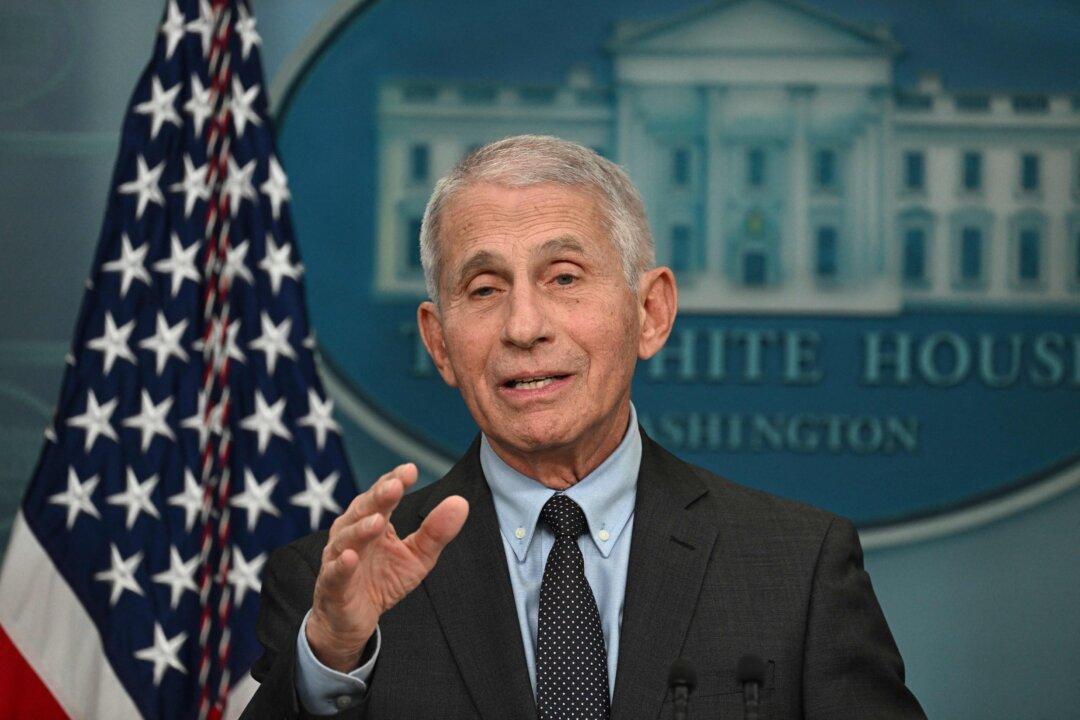Dr. Anthony Fauci, who publicly backed lockdowns during the COVID-19 pandemic, defended his position during a deposition on Nov. 23, according to people who were present for the questioning.
Fauci, the longtime director of the National Institute of Allergy and Infectious Diseases (NIAID) and President Joe Biden’s chief medical adviser, also said the inspiration for the lockdowns was communist-run China.





